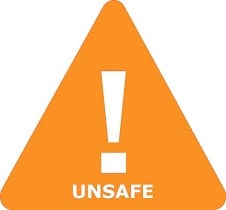Is Cancer Safe in Breastfeeding
Question
I am a breastfeeding mother and i want to know if it is safe to use Cancer? Is Cancer safe for nursing mother and child? Does Cancer extracts into breast milk? Does Cancer has any long term or short term side effects on infants? Can Cancer influence milk supply or can Cancer decrease milk supply in lactating mothers?
Cancer lactation summary

- DrLact safety Score for Cancer is 5 out of 8 which is considered Unsafe as per our analyses.
- A safety Score of 5 indicates that usage of Cancer may cause serious side effects in breastfed baby.
- Our study of different scientific research indicates that Cancer may cause moderate to high side effects or may affect milk supply in lactating mother.
- Our suggestion is to use safer alternate options rather than using Cancer .
- It is recommended to evaluate the advantage of not breastfeeding while using Cancer Vs not using Cancer And continue breastfeeding.
- While using Cancer Its must to monitor child for possible reactions. It is also important to understand that side effects vary largely based on age of breastfed child and time of medication in addition to dosage.
- Score calculated using the DrLact safety Version 1.2 model, this score ranges from 0 to 8 and measures overall safety of drug in lactation. Scores are primarily calculated using publicly available case studies, research papers, other scientific journals and publically available data.
Answer by Dr. Ru: About Cancer usage in lactation
Diagnostic procedures and treatment (antimetabolites, hormone inhibitors, radioisotopes) for proliferative breast diseases are contraindicated while breastfeeding, at the moment of administration and for a variable period of time after completion. (Consult the file for each specific treatment). Keep in mind that the safe waiting period to breastfeed is, at least, 5 half-lives (T½) of the drug in question (Anderson 2016).After treatment for breast cancer, breastfeeding is possible. In breast cancer, when there is no residual tumor, breastfeeding can be achieved, either on the healthy or treated breast, whenever the patient has undergone conservative treatment. However, whether surgery or radiation is used, the latter instance may lead to less milk production, but always remaining the possibility of successful breastfeeding with one breast only. About 50% of women whose breast was irradiated may produce milk on that breast but only one in four women may breastfeed on it. Mechanical or manual removal of milk and/or formula supplementation may be required.Breast irradiation induces to less milk production, although nutritionally adequate, the infant may refuse it because of more sodium content than on the non-radiated breast. After radical and total mastectomy, there is not possibility to breastfeed in the future because of lacking to conservation of breast tissue, nipple or both. Only after partial subcutaneous mastectomy with preservation of part of breast tissue, breastfeeding may be feasible. Breastfeeding after breast cancer poses no danger to the mother nor the child, either if it is from the healthy breast or not. The mother will require appropriate information and assistance along with professional and family support. Breastfeeding is often more difficult when it must be done on one breast only, with a lot of emotional and physical stress together with frustration if exclusive breastfeeding is not achieved. Prestigious Medical and Oncology Societies offer support to mothers who want to breastfeed after such an ordeal. See below the information of this related group:
Alternate Drugs for Disease, Disorder & other Mother´s Conditions.
Maternal Anemia(Safe)
Maternal Rheumatoid Arthritis(Low Risk)
Maternal Brucellosis(Low Risk)
Maternal Candidiasis(Low Risk)
Anthrax(Safe)
Maternal Cardiopathy(Low Risk)
Maternal Cold(Safe)
Cesarean Section(Safe)
Maternal Cytomegalovirus(Safe)
Chlamydia(Safe)
Maternal Depression(Low Risk)
Maternal Diabetes Mellitus(Low Risk)
Drug Addction(Dangerous)
Pregnancy(Safe)
Maternal Epilepsy(Low Risk)
Maternal Multiple Sclerosis(Low Risk)
Maternal Phenylketonuria(Safe)
In Vitro Fertilization(Low Risk)
Maternal Cystic Fybrosis(Low Risk)
West Nile Fever (WNF)(Low Risk)
Maternal Galactosemia(Safe)
Maternal Acute Gastroenteritis(Low Risk)
Giardia Lamblia(Safe)
Maternal Gonorrhea(Low Risk)
Maternal Herpes Simplex(Unsafe)
Maternal Hyperprolactinemia(Low Risk)
Maternal Hyperthyroidism(Low Risk)
Maternal Hypothyroidism(Safe)
inflammatory bowel disease (maternal)(Low Risk)
Maternal Surgery Intervention(Low Risk)
Maternal Leprosy(Low Risk)
Maternal Lyme Disease(Safe)
Augmentation Mammoplasty(Low Risk)
Breast Reduction Mammoplasty(Low Risk)
Maternal Mastitis(Safe)
Ménière(Low Risk)
Menses(Safe)
Migraine(Safe)
Maternal Myopia(Safe)
Maternal Otosclerosis(Safe)
Maternal Psychotic Disorder(Dangerous)
Maternal Rabies Infection(Low Risk)
Maternal Rubella(Safe)
Maternal Measles(Low Risk)
Vaginal Dryness(Safe)
Maternal Aids(Unsafe)
Maternal Syphilis(Low Risk)
Botulinum Toxin(Low Risk)
Maternal Toxoplasmosis(Safe)
Maternal Transplant(Unsafe)
Maternal Trichomoniasis(Safe)
Maternal Tuberculosis(Low Risk)
Maternal Varicella(Low Risk)
Maternal T-Cell Leukemia/Lymphoma 1(Dangerous)
Maternal Htlv-Ii Infection(Dangerous)
Narcolepsy(Low Risk)
Acne(Safe)
Hepatitis E(Low Risk)
Zika Virus Infection(Safe)
